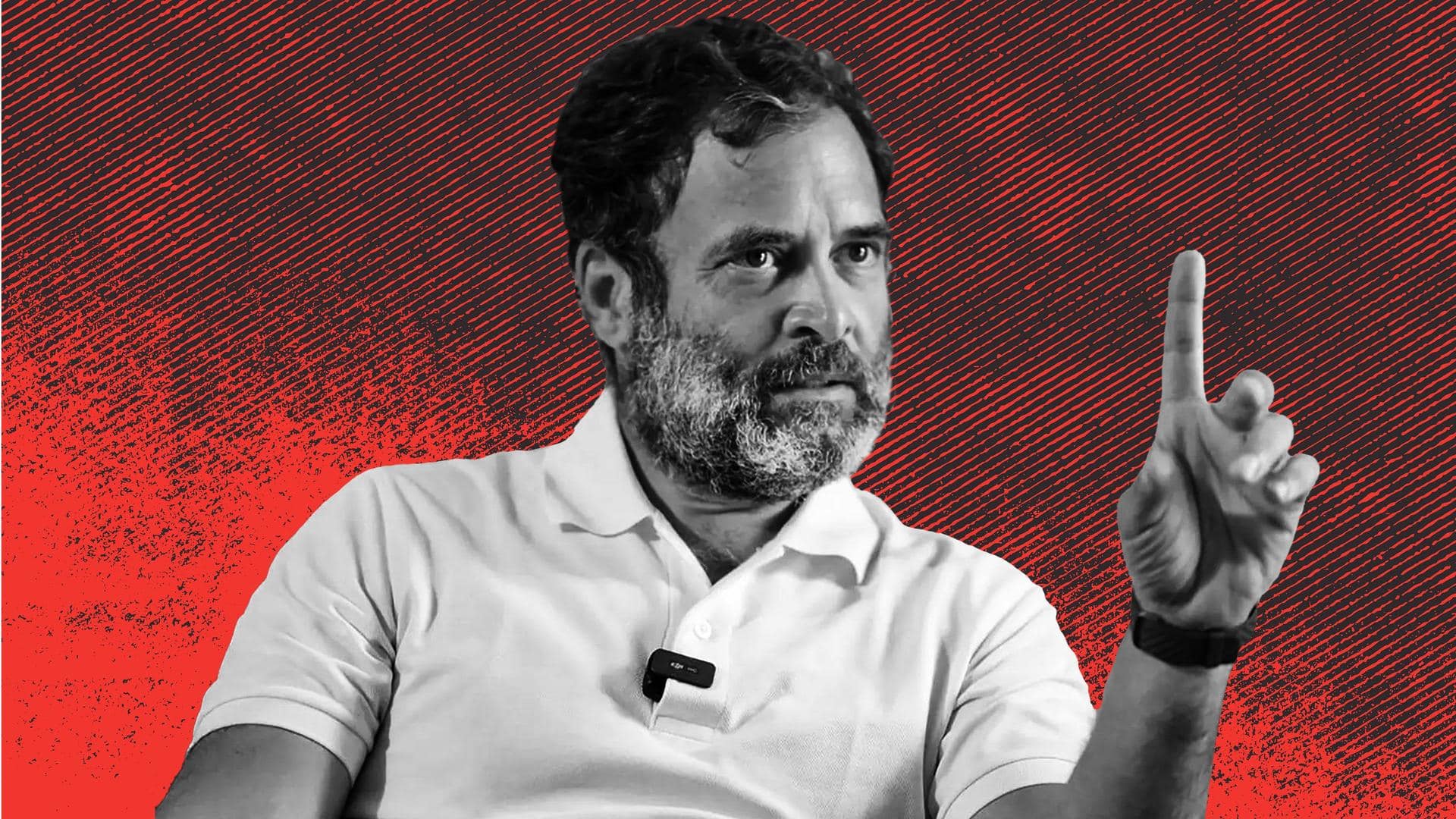
After disqualification, Rahul Gandhi may lose election contesting eligibility too
What's the story
Congress leader Rahul Gandhi was disqualified from the Lok Sabha on Friday after being convicted of criminal defamation in a 2019 case. To make matters worse, the Gandhi scion now risks losing his eligibility to run for MP for the next eight years. However, he can avoid the long disqualification if he challenges the sentence and obtains a stay order.
Context
Why does this story matter?
Notably, the case against Gandhi was filed in Gujarat, the Bharatiya Janata Party's (BJP) heartland. The Congress has called the case a ploy by the BJP to stifle the Opposition. Prior to Gandhi's disqualification, the BJP had also called for his suspension from the Lok Sabha for allegedly defaming India in his United Kingdom (UK) statements about the BJP government's purported suppression of dissent.
Details
Gandhi's disqualification order invoked Representation of the People Act, 1951
The disqualification order issued by Lok Sabha Secretary-General Utpal Kumar Singh invoked the provisions of Article 102(1)(e) of the Indian Constitution, read with Section 8 of the Representation of the People Act (RP), 1951, to make the decision. It said Gandhi, who represents the Wayanad Parliamentary constituency of Kerala, stands disqualified from the House from the date of his conviction i.e March 23, 2023.
About
Know about the Representation of the People Act
The Representation of the People Act was passed in the Parliament of India in 1951 after the then Law Minister Dr. BR Ambedkar introduced the bill. It provides rules regarding the parliament and Assembly elections and the qualification and disqualification of the House members. The main purpose of this act is to set rules related to public representatives (MPs and MLAs etc.)
Provisions
Provisions on cancellation of membership
The act also states that an MP or MLA's membership can be revoked in two situations, including serious offenses such as promoting enmity between groups and accepting bribes. Defamation, for which Gandhi has been convicted, does not come in this category. Also, the offense against public representation should be registered under Section 8(1) of the Representation of the People Act.
Cancelation
Gandhi's membership canceled under Section 8 (3) of RP Act
According to Section 8 (3) of the Representation of the People Act, if any public representative is sentenced to two years or more in any case, his membership will be canceled. Under this, Gandhi can be barred from contesting elections for six years after the completion of the punishment period.
Wayout
Gandhi can escape longer disqualification if higher court stays conviction
Earlier, Section 8(4) of this act provided protection to an MP or MLA after being convicted in a criminal case. However, the Supreme Court struck it down in 2013, calling it illegal. However, the member, including Gandhi, can escape the long disqualification provided he appeals to the concoction higher court and gets a stay on it to save his membership.
More
A little about 2019 defamation case against Gandhi
In 2019, while launching an attack on PM Narendra Modi, who was running for a second term at the time, Gandhi said in Karnataka's Kolar district, "Nirav Modi, Lalit Modi, Narendra Modi...How come all the thieves have Modi as a common surname?" A BJP legislator from Surat (West), Purnesh Modi, took offense and filed a complaint, accusing Gandhi of defaming the whole Modi community.